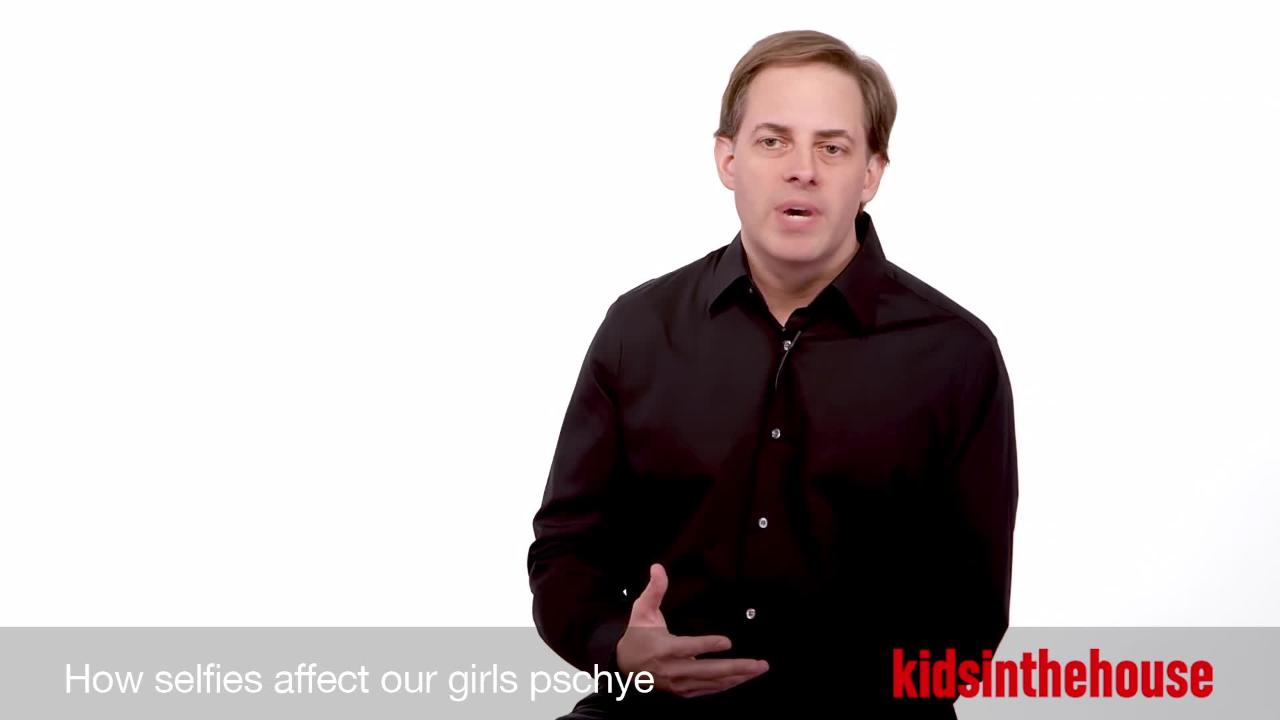How selfies affect our girls psyche
- A lot of kids don't realize the difference between social media online presentations of people's lives and what's real offline. And one of the reasons why that's particularly important for adolescent girls is because there's something about social media that leads to a lot of social comparisons. Girls tend to be a little bit more likely than boys to put selfies on and in particular, full body selfies, especially when not wearing as many clothes, so adolescent girls are looking at images of bodies online in a way that makes them feel like they need to compare their own body attractiveness, or shapes, to what they're seeing, forgetting that sometimes there are filters, there are Photoshopping or different kinds of ways that these images are carefully curated to show an unrealistic body display, and that's unfortunate because girls might use social media as a way of then making themselves feel bad about their own bodies or their own appearance, tagging onto what society already is doing to give girls a very unrealistic and unfair idea of what they're supposed to look like.
Mitch Prinsteins shares research on why girls might use social media as a way of then making themselves feel bad about their own bodies or their own appearance, tagging onto what society already is doing to give girls a very unrealistic and unfair idea of what they're supposed to look like.
Related Videos
Transcript
Expert Bio
More from Expert
Mitch Prinstein, Ph.DProfessor of Psychology and Neuroscience
Mitch Prinstein, Ph.D. is a husband, a father, board certified in clinical child and adolescent psychology, and serves as the John Van Seters Distinguished Professor of Psychology and Neuroscience, and the Director of Clinical Psychology at the University of North Carolina at Chapel Hill.Mitch’s Peer Relations Lab has been conducting research on popularity and peer relations for almost 20 years, and has been funded by the National Institute of Mental Health, the National Institute of Child and Human Development, and several private foundations, resulting in over 100 scientific works, including a slew of scientific journal articles, book chapters, a set of encyclopedias on adolescent development, and even a textbook on the field of clinical psychology.Mitch is deeply committed to science and training in clinical psychology, having served as President of the Society for a Science of Clinical Psychology and the Society of Clinical Child and Adolescent Psychology, the Editor-in-Chief of the Journal of Clinical Child and Adolescent Psychology, and on the boards of the American Psychological Association, the Council of University Directors of Clinical Psychology, and publication board of the Association of Behavioral and Cognitive Therapies.He and his research have been featured in The New York Times, The Wall Street Journal, National Public Radio, the Los Angeles Times, CNN, U.S. News & World Report, Time magazine, New York magazine, Newsweek, Reuters, Family Circle, Real Simple, and elsewhere.




 GET ACCESS TO ALL PREMIUM CONTENT WITH NO ADS FOR $4.99/MONTH
GET ACCESS TO ALL PREMIUM CONTENT WITH NO ADS FOR $4.99/MONTH




Login or Register to view and post comments